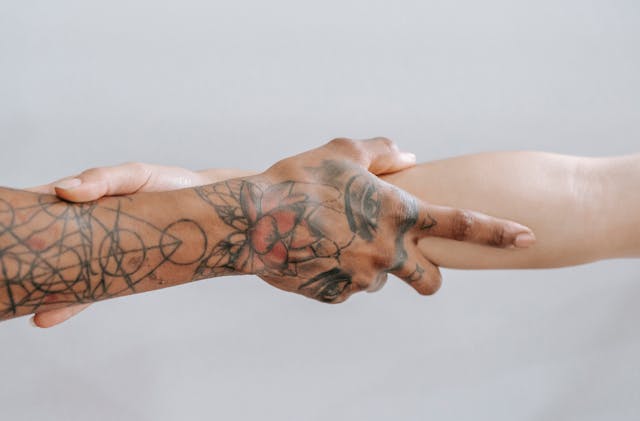
Ah, culture. One word that can encapsulate so much. It’s nice and bendy, too, which is fabulous for story ideas (or for injecting more conflict in a story that feels flat). Put more than two humans together and somewhere, somehow they will find something to fight about.
They might be from the same country, but a different region (a New Yorker and a Texan) or from the same state but different part (Manhattan versus Buffalo). Even if they are from the same city, they might have a different heritage (Latino versus German). Maybe conflicting occupations. Think engineer and yoga instructor.
There are a gazillion ways that we humans can stumble into conflict. Age, sex, race, religion, socioeconomic status, education, hobbies, political views, on and on and on invariably impact our perspective. It’s a clash of cultures, so to speak.
One of the main reasons I love the idea of a “clash of cultures” is because this allows us (Author God) to create tension that feels organic and begs for us to keep turning pages (or watching). In fact, it is a long time staple of some of the most successful stories.
What is literally every Hallmark movie? The workaholic executive (insert Type A high achiever here) meets the down-to-earth organic grocer (insert chill Type B/recovering Type A here). A crowned prince falls for the everyday girl. Billionaire falls for the wedding planner. Heiress falls for the activist. Or flip that.
Why do we love these stories? Because they are fun. One world trying to understand and work around the other, butting heads, but then finally coming together at the end and being better for knowing one another.
Audiences cannot get enough of….
The Odd Couple
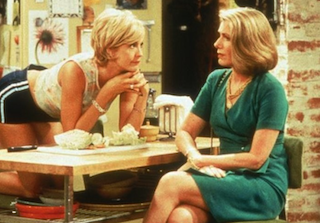

This trope works wonderfully for romance, comedy, romantic comedy. You guys remember the show Dharma and Greg? For those who have followed my blog for a while, I hammer on log-lines. Can you tell us what your story is about in 1-3 sentences?
You can almost SEE the book/series/movie with just that snippet.
How is this for a great log-line?
A free-spirited yoga instructor finds true love in a conservative lawyer and they get married on the first date. Though they are polar opposites, he fulfills her need of stability and she fulfills his need of optimism.
via IMDB
You can see the delicious conflict right off the bat with just the couple, but what about their respective cultures?
Dharma’s father is a paranoid pothead who doesn’t trust the government and her mom is an Earth mother hippy who reads chakras and cures all that ails you with a crystal. Her parents are very bohemian. Contrast that with Greg’s parents, who are elite, moneyed, and politically conservative, and….
…the jokes practically write themselves.
Notice in that wonderful IMDB log-line, whoever wrote it goes on to explain why this odd couple works. They each have something the other party needs. Therein lies the rub. We humans can sense what we need intuitively long before our brains catch up.
Very often we are attracted to the very people who make us crazy. We gravitate to the culture that makes us bonkers. Frankly, I think it is why most writers are married to an engineer or an engineer-type personality.
***You know who you are.
Whether it is Green Acres, The Odd Couple, Dharma & Greg, The Big Bang Theory, or every Hallmark movie ever made, it WORKS.
And culture is a FABULOUS area with a lot of unexplored terrain. Guess what? This trope also works for mysteries (Sherlock Holmes), science fiction (Star Trek) psychological thrillers (Fight Club), action movies (The Bourne Identity), kid movies (Finding Nemo), fantasy (The Witcher) etc.
The Fish Out of Water & Culture
We all recognize the “fish out of water” story, right? Whether it is a rags to riches (Goodwill Hunting) or a riches to rags (Uptown Girls), or a little of both (Trading Places) audiences cannot get enough. And it works for every genre from campy comedy (Green Acres) to action-thriller (Safe House).
I recently discovered a new favorite movie, The Farewell. If this movie doesn’t make you cry a little…you might not have a soul. When it comes to clash of culture this story hits on ALL cylinders and I promise NOT to ruin it.
A Chinese family discovers their grandmother has only a short while left to live and decide to keep her in the dark, scheduling a wedding to gather before she dies.
VIA IMDB
Though there is plenty of drama, there’s also loads of laughs. Not only do you have a clash of culture between young and old, but the literal clash of cultures between…well, cultures.
Granddaughter Billi is a typical Chinese-American girl living in NYC with her immigrant parents. Though Billi lived in mainland China when she was a child, she’s been in the USA so long she is thoroughly American.
Her parents try to act as a bridge between the old country and new. When Billi’s grandmother gets a diagnosis of Stage Four cancer, Billi is utterly mystified why no one in the family will tell her. Yet, Billi’s mother says it perfectly:
Chinese people have (a) saying. When people get cancer, they die.
Lu Jian in “The Farewell”
Culture Shock
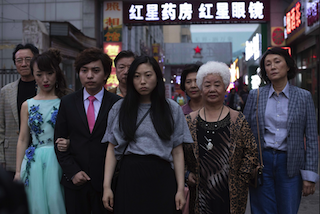

The family plans a trip to China, telling the grandmother that the spur of the moment gathering is for a wedding. Secretly it is a way they can all see her one final time before she dies. Billi is not welcome to come along because the family is afraid she will blow it. Then, add on TOP of that family that has immigrated elsewhere. One of the uncles moved to Japan and his son (groom) has a Japanese bride.
All of this makes for a beautiful, heartwarming story that will make you laugh and cry and—regardless where your family is from—maybe hug them a little tighter.
The Generation Gap
Regardless where we are from, our occupation, our gender, there is one conflict that transcends them all…AGE. This is true with siblings, relatives, bosses, or just LIFE. If there is an age gap, there is fantastic room to grow an amazing story.
Some of our most timeless stories capitalize on this trope. The Joy Luck Club (both the book and the movie) is a wonderful tapestry of three generations of Chinese women. In present-day the mothers and daughters seem to do nothing but fight. Why? The mothers only want what is best for their daughters. They were once young, too and they also saw their own mothers struggling with the same issues.
I tell you the story because I was raised the Chinese way. I was taught to desire nothing, to swallow other people’s misery, and to eat my own bitterness. And even though I taught my daughter the opposite, still she came out the same way. Maybe it is because she was born to me and she was born a girl, and I was born to my mother and I was born a girl, all of us like stairs, one step after another, going up, going down, but always going the same way.
An mei from “The Joy Luck Club”
The moms want the best for their daughters and yet the daughters cannot seem to “see” anything but their mothers’ disappointment, disapproval, or disdain. The point of the story is to iron out the wrinkles that keep coming between two generations of women and make a way for a better future.
Mentors & TOWANDA!
Who doesn’t love a good mentor/mentee story? The mentor is a mentor because that person has more experience and, therefore, is likely older. There is a generational gap and a culture clash. A great example is the movie Fried Green Tomatoes (based off the novel Fried Green Tomatoes at the Whistle Stop Cafe) .
Evelyn Couch is a middle-aged doormat who puts up with far to much bullsprinkles from her husband and family. When she meets a mysterious nursing home resident, they strike up an unlikely friendship. Ninny Threadgoode spins a tale (set in rural America in the 20s) about love, loss, life…and even some murder.
Over time, those stories serve as a beacon in the dark that leads Evelyn on a journey of self-discovery, evolution, and finally…empowerment. #BestSceneEver
The good thing, again, about a generation gap is that it works for all genres. Fried Green Tomatoes is a drama with elements of comedy. So is Steele Magnolias, The Karate Kid, and (the book) A Man Called Ove or the movie.
Though we wouldn’t, per se, classify any of these stories as a straight up comedy, they cannot help but make us laugh when generations collide.
Beetlejuice, Beetlejuice, Beetlejuice!
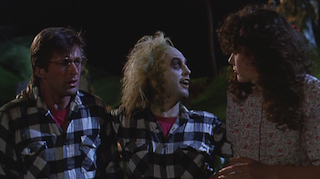

Talk about a story that also hits on all cylinders when it comes to the culture clash. Today, we will stick to the original Beetlejuice because the new one merits a standalone post.
It…is…AWESOME.
There are all KINDS of perspectives log-jamming with each other. The Living (the Deetz family) and the Recently Deceased (the Maitlands), edgy sophisticated NYC/versus L.L. Bean, teenager versus parents, dead people who want to be alive and a teenage girl who wishes she were dead. Everywhere you turn in this movie, there is conflict and tension.
Which is why the movie is still fantastic…34 years later.
Everyone wants something different, yet who they are/where they are from (perspective/culture) creates problems. Whether it’s the newly dead Maitlans who need answers yesterday. Or the overworked and long dead social worker from the other side, Juno who measures her schedule in decades.
Nothing comes easily.
Charles Deetz wants a rural escape, but his high-strung, neurotic wife needs to create…starting with his house. Lydia, the teenager who wants to disappear is the only one who can help the Maitlands, who want nothing more than to be SEEN.
And, if that weren’t enough drama, toss in a lunatic unemployed trickster spirit. Nothing like mayhem to generate some teamwork, right?
Can’t Have CULT, Without CULTure!
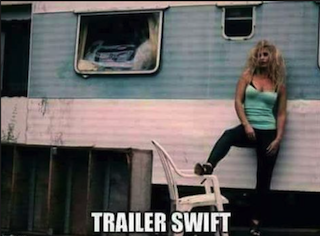

Culture is a word with a lot of variegated meanings. It can also be as broad or narrow as we want or need it to be, as you can probably tell from the wide range of examples I gave from virtually every genre. If you are trying to create a story that is “same” enough to resonate, but “different” enough to spark interest…try starting with a culture clash.
I used that technique to fix my first novel, The Devil’s Dance.
When I wrote my original story idea, all the beta readers…hated my MC. They loved all the supporting characters, but something just wasn’t connecting with the MC.
Sigh. *bangs head on wall*
My idea: Riley was a combat vet, recently home from Afghanistan who’s family unintentionally runs afoul of a major cartel.
Problem was? According to the beta readers, though they liked the idea, my MC wasn’t relatable.
I rethought my approach, shifted from third-person close to first-person and then used my campy blogging voice.
The Devil’s Dance
Instead of Riley Romi being a bad@$$ but damaged character who was more than capable of handling a cartel, I changed her into a hot mess fish-out-of-water up against impossible odds (and that’s just her FAMILY).
Romi grew up white trash in a tiny town on the road to nowhere. She “escapes” and gets her education and a premium job in tech sales…only to be left holding the metaphorical bag when her rich fiancé pulls an Enron-like scandal, disappears, and leaves her as the FBI’s prime suspect.
Broke, blackballed and out of options, she has no choice but to slink home, defeated and humiliated, to her Jerry-Springer-crazy-as-a-bag-of-frogs family…and THEN she and family run afoul of a cartel.
To make matters worse, the FBI thinks she’s making a run for the border (not Taco Bell).
LOADS of worlds colliding that makes for a hilarious, nail-biting read (if I do say so myself *gets cramp patting own back*).
See how I had a story that was “meh” but was able to save it simply by pivoting a little toward the zone with the most conflict? Culture saved my story idea. Though I kept the same kernel of an idea—a small town with a dark secret, a family up against the cartel—the story was 180 degrees different and a million times better.
What Are Your Thoughts?
Do you see how culture is far more influential that a lot of people might imagine? Nerds versus Normies? Old versus young? The jaded versus the neophyte? Can you see how just even on a micro-scale, you could inject more dramatic action, tension and subtext by simply playing up each character’s cultural perspective?
What are some other movies, books, or series that you now see executed the culture clash with particular brilliance? In a world being deluged by same old same old, what are some crazy cultures you might be able to force together in a story? Same…but DIFFERENT?
REMEMBER: Last post How to Create YOUR Audience: Identify, Connect, Convert, we talked about how to make the author brand more manageable and authentic. How do you connect to then curate your unique audience? I am still eager for victims volunteers for when I post on what exactly we do with that word cloud. This is to help you work smarter not harder. Though my other personalties are happy to help, this is a sweet chance to get free consulting for those brave enough to post their word clouds in the comments.
Remember the longer the cloud the better and also tell me what GENRE you write.
Until next time!
